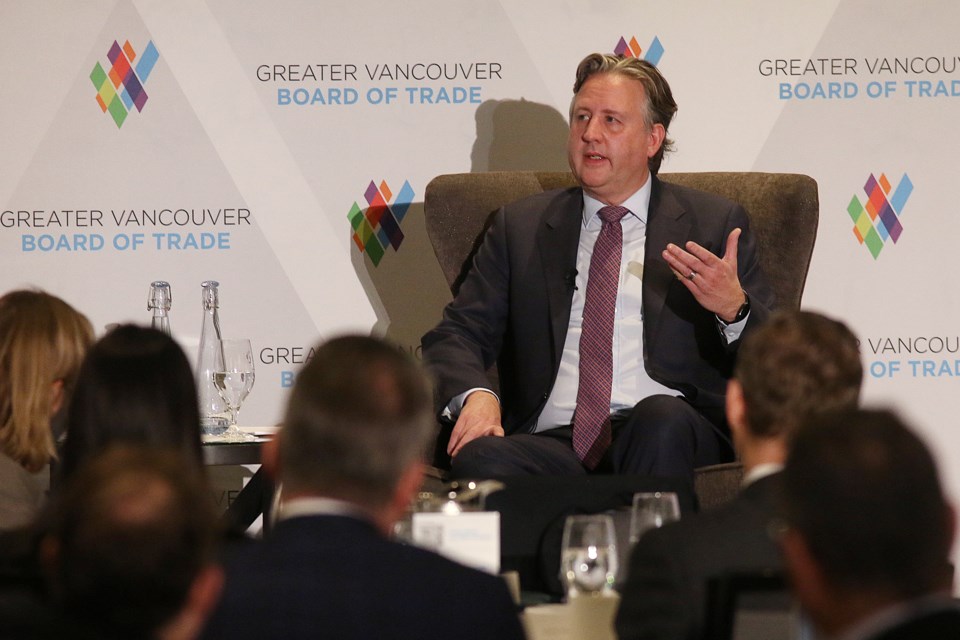Stewart also took questions from the Greater Vancouver Board of Trade’s president Bridgitte Anderson about crime concerns of downtown business owners and whether the police are well resourced, which he said they were.
“We put a record amount of money into police services last year — it was the highest it has ever been,” the mayor said.” So despite the disputes [over the police budget], it's still a lot of resources that I do think are being used effectively by Chief [Adam] Palmer and his executive.”
Stewart’s comments come as council prepares to deliberate the city’s overall operating budget, with more than $300 million dedicated to policing. Last year, council voted not to fully fund the VPD’s budget proposal, which caused an ongoing rift between the department, the police board and council.
On housing, which Stewart said he has made the “centrepiece” of his time in office since elected in 2018, he pointed to investments of more than $545 million from the federal government and $350 million from the provincial government.
In 2019 and 2020, he said, the city used more than $100 million in development charges and amenity contributions to "incentivize" nearly 6,000 below market homes and purchase land for future projects.
“I’m confident our 2021 numbers are going to be even stronger, and that doesn’t even take into account my move to triple the empty homes tax which will push more homes back onto the market and provide additional revenue for housing,” he said, noting the total investment from all levels of government amounts to 10,000 homes.
The Housing Vancouver program, approved prior to the last election, set a target to build 72,000 total homes over 10 years. During the last election, Stewart campaigned on a promise to ratchet that up to 85,000 homes.
“Today, I’m proud to announce that we are on pace to approve nearly 100,000 homes over 10 years,” he said, before thanking staff and some of the councillors present at the luncheon. “This far and away exceeds our targets, and we’ve done it despite the challenges of COVID-19.”
Complaints from builders about long waits to get permits and licences have been an ongoing issue for council, with directions to staff to break the logjam. Stewart acknowledged the “mountains of red tape” in his address and noted the work of a permitting task force.
The results so far, he said, have seen tree bylaw applications processed two weeks faster, demolition permits three weeks faster, detached home and duplex approvals 12 weeks faster and change of use and occupancy permits 12 weeks faster.
The mayor noted the challenges the pandemic has had on the city’s finances and businesses and acknowledged Anderson’s assessment that taxes had gone up 20 per cent in the past three years.
Stewart said another property tax increase to balance the 2022 budget will occur once council finalizes the budget in December. The city’s economic situation has triggered the need for a tax hike, which council hopes to hold to five per cent or less.
“That fun merry-go-round is happening now where we're trying to prioritize, and we've been working on it all year, but you will see a tax increase,” he said.
Stewart said he continues to advocate for decriminalization and a safe drug supply to stem the overdose crisis. He is hopeful, he said, that a business case that will cost $40 to $60 million can be made to extend the Broadway subway line to the University of B.C.
The mayor’s address was his last one to the board of trade before the October 2022 election. Stewart, a former NDP MP, is seeking re-election and will face what has become a crowded field of candidates, who largely represent the centre-right side of the political spectrum.
@Howellings




